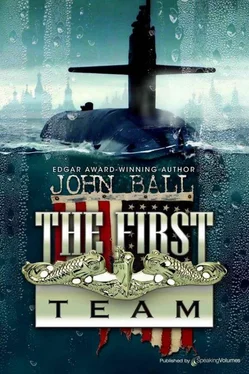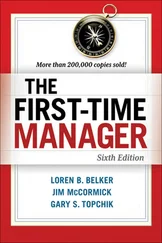Джон Болл - The First Team
Здесь есть возможность читать онлайн «Джон Болл - The First Team» весь текст электронной книги совершенно бесплатно (целиком полную версию без сокращений). В некоторых случаях можно слушать аудио, скачать через торрент в формате fb2 и присутствует краткое содержание. Год выпуска: 2013, Жанр: Триллер, на английском языке. Описание произведения, (предисловие) а так же отзывы посетителей доступны на портале библиотеки ЛибКат.
- Название:The First Team
- Автор:
- Жанр:
- Год:2013
- ISBN:нет данных
- Рейтинг книги:5 / 5. Голосов: 1
-
Избранное:Добавить в избранное
- Отзывы:
-
Ваша оценка:
- 100
- 1
- 2
- 3
- 4
- 5
The First Team: краткое содержание, описание и аннотация
Предлагаем к чтению аннотацию, описание, краткое содержание или предисловие (зависит от того, что написал сам автор книги «The First Team»). Если вы не нашли необходимую информацию о книге — напишите в комментариях, мы постараемся отыскать её.
Student protesters are being slaughtered in the Midwest.
The Jewish pogroms have begun.
You are now living in Soviet — occupied America!
One nuclear submarine and a handful of determined patriots against the combined might of Russia and Soviet-occupied America… The Most Explosive and Gripping “What If” Novel of Our Time!
First published January 1971
The First Team — читать онлайн бесплатно полную книгу (весь текст) целиком
Ниже представлен текст книги, разбитый по страницам. Система сохранения места последней прочитанной страницы, позволяет с удобством читать онлайн бесплатно книгу «The First Team», без необходимости каждый раз заново искать на чём Вы остановились. Поставьте закладку, и сможете в любой момент перейти на страницу, на которой закончили чтение.
Интервал:
Закладка:
She was going to say more, but he would not let her. Raising both fists, he slammed them onto the arms of the chair. “Your boss will kill you,” he yelled.
Calmly she shook her head. “To me this prison was given to run,” she said. “It is to me to decide what to do. I tell you now that I alone am in charge; it is how we do things. You have made much trouble screaming in the night that you must be let out quickly. I send for you to tell you that it will not happen. You do not love us, you do not love me. You love only yourself.”
Wattles turned livid despite his dark skin.
“You have yet eight years to serve. You have this time to learn that you are nothing, that we do not desire you. If you do not learn, we will keep you longer. As long as we wish. If you more trouble make, I will put you in solitary. That is all.”
Back in his cell Erskine Wattles sat on the edge of his hard bunk and cursed the name of the God who had betrayed him.
On Unimak Island in the Aleutians the operator of a secret electronics communications facility listened carefully to WWV and once again checked the accuracy of his chronometer against the time tick broadcast. It was precisely on. That verified, he turned his attention to a specialized receiver that was crystal-controlled and to the backup unit which was its exact duplicate and which operated from an entirely separate power circuit. Both pieces of equipment had built-in checkout circuits which continuously monitored their performance; both read out that their parent circuitry was working perfectly.
At minus ten minutes the operator started the tape recorders, sensitive instruments that could detect and preserve the faintest sounds captured by the receivers. The highly directional antennae were properly positioned and tuned; everything was in readiness. Then, carefully and methodically, the operator checked everything once more. He knew the importance of what he was doing and he was taking no chances. Even he did not know that at another site, of which he was not aware, similar precautions were being taken for the same purpose; Colonel Prichard was not a man to leave anything to chance.
Precisely on the second that it was expected a very short, unreadable three-second transmission was received. It came and went so quickly it was almost like the winking of a flashbulb without the brilliance to announce its presence. To hear it, anyone for whom it was not intended would have had to have had the necessary underwater antennae properly tuned and precisely aimed; the chances of that happening by accident were mathematically almost invisible.
As soon as the message had been recorded the operator on Unimak relayed it on by secret circuit; it was received and transcribed in the underground headquarters of Thomas Jefferson very shortly thereafter. The news that it conveyed gave Admiral Barney Haymarket the greatest emotional lift he had known since the first indefinite messages had been received from San Francisco which indicated that the Magsaysay had probably made good her initial escape. All that he had had to go on at that point had been the likelihood that he had a ship at sea, but within vulnerable range of the enemy, unprovisioned, and with a highly hazardous at-sea supply operation setup which would depend to a large degree on luck — sea conditions and the lack of enemy interference. He had gambled with those odds because it was the best that he had been able to do, but he had not liked it and it had worried him out of two consecutive nights’ sleep.
The message he had in hand now was enough to make him call together all of his immediate associates who were available. Major Pappas had been asleep; the distinctions between night and day in the underground facility had been erased and the clock had become the sole arbiter of time. It had taken the major almost four minutes to rouse himself, get out of bed, dress, and report to the coffee bar where the admiral and the rest of the members of the First Team, with the exception of Walter Wagner, awaited him. He apologized for his late appearance.
“As far as I am aware, Ted,” the admiral said, “that’s the first time that you’ve been in the sack for the past three days. Now here’s the word.” He looked around at the small group on which he relied so much. “We have a report from Magsaysay.”
He stopped long enough to let his team understand the full meaning of his words. “She rendezvoused with the Dolly and resupplied successfully. There was no interference, and she reports no ill effects; all hands are well.”
“Three to one she unloaded her refugee passengers,” General Gifford said.
“I’d go stronger than that,” the admiral answered. “I’m sure of it. Anyhow, she is presently on her way north and at least she is in better trim than she was.”
“Have they had a chance to check out the armament?” Ed Higbee asked.
“No definite word on that, but I’m certain she wouldn’t have reported all well unless.
“Of course; sorry.” Higbee resorted to his coffee cup; he didn’t often make mistakes like that. “It’s good to know that Walter’s all right.”
“No reason he shouldn’t be,” Prichard said. “He told me when I asked him that he’s done a hundred and twenty-five feet and apparently it didn’t bother him a bit.”
Stanley Cumberland shook his head. “Specialized ability, I never cease to marvel at it. You find it all over the place and there’s no real explanation. Training and practice, of course, but I wanted to be a violinist and after three years I gave it up as hopeless. It’s got to be born in you.”
Major Pappas did not comment on that; he contented himself with drinking his coffee.
“Anyhow, gentlemen,” the admiral continued, “the only question now is, do we start phase two immediately, or wait until Magsaysay is over the next hurdle?”
“I say we go,” Higbee said. “Every hour of delay now gives them more time to absorb and think. Let’s keep the pressure on.”
“He’s right,” Colonel Prichard agreed. He did not waste words.
“Those opposed?”
There was no response to that.
The admiral had a little more of his coffee. “All right, Ed,” he said to Higbee. “It’s your ball now, yours and Ted’s. Let’s see some action.”
Higbee rubbed his hands together. He was entitled to; he had waited a long time. “You will,” he promised.
Hewlitt noted the change of atmosphere once more as he answered the summons to the Oval Office. Usually Zalinsky continued with whatever he was doing and paid him no attention until it pleased him to do so; this time the administrator watched him as he came in and kept his eyes on him while he seated himself and waited.
After a pause of a few seconds Zalinsky spoke. “Today we will converse in my language; I do not desire to practice English.”
Hewlitt responded with an idiom which in essence meant, “That’s fine with me.”
“You have heard about the submarine?”
That called for an instant decision, and Hewlitt made it. “Rumors,” he said.
Zalinsky shook his head. “I do not understand you Americans. First, when you have everything, you refuse to fight back. Then, when you have nothing, you take desperate chances that cannot succeed.”
“We took a desperate chance in 1776,” Hewlitt said.
Zalinsky waved a hand. “A good slogan, I grant you, but what happened that far back is no precedent for today — you know that.”
While he was speaking Hewlitt saw the way out of a dilemma. “Let us talk about the submarine for a moment,” he said. “I have heard rumors, as I said, but they conflict. What happened?”
“Tell me first what you have heard.”
“One of our nuclear submarines is at sea manned by a Navy crew. She escaped in full daylight from the Bremerton Navy Yard. She is supposed to be fully armed with missiles.”
Читать дальшеИнтервал:
Закладка:
Похожие книги на «The First Team»
Представляем Вашему вниманию похожие книги на «The First Team» списком для выбора. Мы отобрали схожую по названию и смыслу литературу в надежде предоставить читателям больше вариантов отыскать новые, интересные, ещё непрочитанные произведения.
Обсуждение, отзывы о книге «The First Team» и просто собственные мнения читателей. Оставьте ваши комментарии, напишите, что Вы думаете о произведении, его смысле или главных героях. Укажите что конкретно понравилось, а что нет, и почему Вы так считаете.












